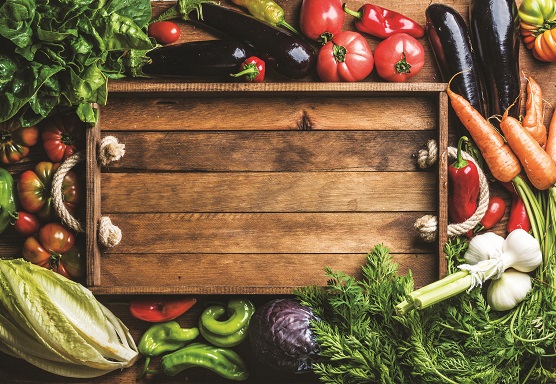
As a new mum, you need as much dietary care as when you are pregnant. Having undergone childbirth, your body will go through many changes. You will start to lactate and be breastfeeding soon, so a healthy and nutrition-dense diet will be crucial to promoting healing and recovery. Our dietitians from the Nutrition and Dietetics Department, provided some tips to aid your journey through this new, exciting phase.
TAKING CARE OF YOURSELF
After childbirth, you go into what is called the postpartum period, which lasts for several weeks. During this time, you will be staying at home to recuperate. But it is anything but mundane as several things are happening at once. Your body needs time to recover, and you need the quiet, uninterrupted period to bond with your new baby and understand his or her needs.
Diet is one of the most important things you can do to aid in this process and to prepare you for breastfeeding. On this, Ms Chong says, “To ensure healthy parenting as a new mum, you’ve to make sure your diet is diverse, healthy and balanced. Eating a healthy meal means eating food from all four groups, namely Rice & Alternatives; Fruits; Vegetables; and Meat & Alternatives.”
As a rule of thumb, you should select meals from the four groups; meals that are high in fibre and iron. While it is a given among many fruits, you can consider adding dark leafy vegetables, whole grains and low-fat dairy products. You also need to drink enough liquids. It is adequate only when you do not feel thirsty, and your urine is at least, light yellow in colour.
BREASTFEEDING DIET – REAL OR MYTH
During pregnancy, you have likely tailored your diet to support your baby’s healthy development and well-being. Similarly, many mothers have sought advice on a breastfeeding diet to give their children the best nutrition and in cases of infants’ food intolerance, what to avoid in the diet.
“There’s insufficient evidence to show that certain foods you eat while you’re breastfeeding will cause your baby to experience any discomfort,” Ms Chong says. “But some children are more sensitive and have reactions to particular food. Examples are food with strong flavours such as onion and garlic, and caffeinated drinks that can cause them to become hyperactive and suffer from sleep problems. For the latter’s case, you can watch your baby’s response and adjust your caffeine intake accordingly.”
Other than that, there is no ideal way of designing your diet for breastfeeding; it is more about having complete nutrition and eating enough to sustain the added responsibility of breastfeeding a baby.
MAINTAINING A HEALTHY WEIGHT
After childbirth, you will realise you still have the baby weight that you want to shed. There is no immediate way to slim down. In fact, it is recommended you begin a slimming regimen only after a post-natal check, and only if your doctor gives you the go ahead. The good news is that even without a strict weight loss regimen, you can still slim down naturally by eating healthily and drinking water to stay hydrated.
Rather than just trimming down after pregnancy, the key is also about maintaining a healthy weight even before childbirth. It is also beneficial for the developing baby in the womb. There is a higher risk of developing pregnancy problems like gestational diabetes for pregnant mums who are conceiving with excess weight. Babies with overweight mums also run the risk of health problems like congenital disability and childhood obesity.
A few general tips: eating high-fibre and high-protein food is a good way to feel full for a longer period. Also, eat more often but keep each meal lighter. It is equally important to gradually increase your physical activity. Go slow in losing weight. Aim to lose no more than 450 grammes of weight each week.
WHAT TO AVOID
There is one thing that is a no-no when you start breastfeeding – alcohol – as it will get into your breastmilk, affecting the baby’s health and development.
Foods with high fat or high sugar content should be avoided too, including fried food, white bread and sodas. They provide little gratification and will spike up your blood sugar level, making you more tired than a postpartum period.
It is also advisable that food consumed by mummies are hygienically prepared and well cooked to prevent food poisoning. This is a fundamental part of a new mum’s diet that many may neglect, as childbirth has weakened her immune system and made her susceptible to opportunistic infection. The above guidelines will help you regain your energy and strength. In time, you will feel more like your old self again.
To learn more about our Nutrition and Dietitian services, click here.
This article is taken from our My Alvernia Magazine Issue #29. Click here to read the issue on our website or on Magzter.